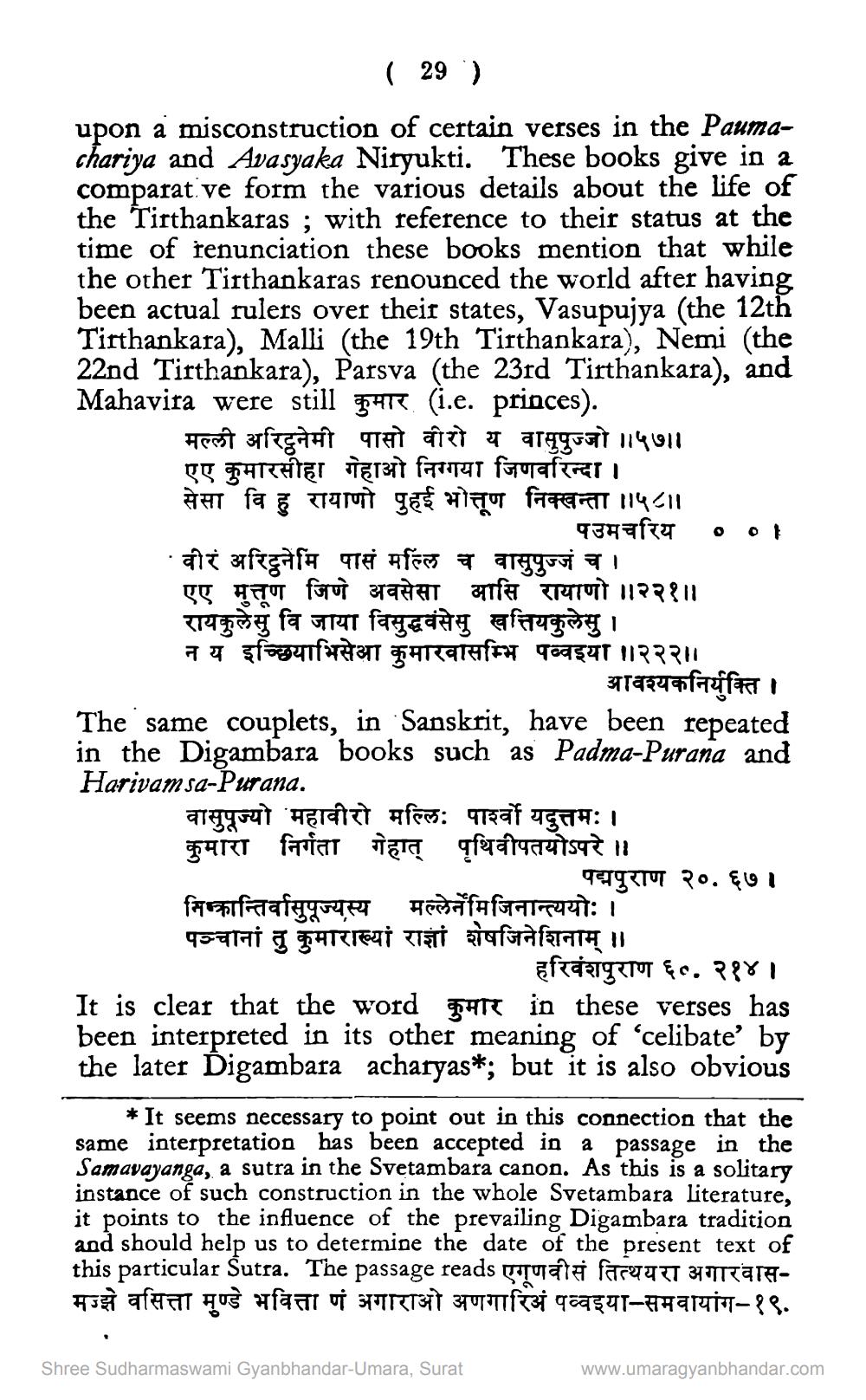________________
( 29 )
upon a misconstruction of certain verses in the Paumachariya and Avasyaka Niryukti. These books give in a comparat ve form the various details about the life of the Tirthankaras; with reference to their status at the time of renunciation these books mention that while the other Tirthankaras renounced the world after having been actual rulers over their states, Vasupujya (the 12th Tirthankara), Malli (the 19th Tirthankara), Nemi (the 22nd Tirthankara ), Parsva (the 23rd Tirthankara ), and Mahavira were still कुमार (ie princes).
मल्ली अरिट्ठनेमी पासो वीरो य वासुपुज्जो ॥५७॥ एए कुमारसीहा गेहाओ निग्गया जिनवरिन्दा । सेसा विहु रायाणो पुहई भोत्तूण निक्खन्ता ॥ ५८ ॥ पउमचरिय
वीरं अरिनेमि पासं मल्लि च वासुपुज्जं च । एए मुत्तूण जिणे अवसेसा मासि रायाणो ॥ २२१ ॥ रायकुलेसु वि जाया विसुद्धवंसेसु खत्तियकुलेसु । न य इच्छियाभिसेआ कुमारवासम्भि पव्वइया ||२२२ ।।
आवश्यकनिर्युक्ति ।
The same couplets, in Sanskrit, have been repeated in the Digambara books such as Padma-Purana and Harivamsa-Purana.
वासुपूज्यो महावीरो मल्लिः पार्श्वो यदुत्तमः । कुमारा निर्गता गेहात् पृथिवीपतयोऽपरे ॥
o ot
मिक्रान्तिर्वासुपूज्यस्य मल्लेनेंमिजिनान्त्ययोः । पञ्चानां तु कुमाराख्यां राज्ञां शेषजिनेशिनाम् ॥
पद्मपुराण २०.६७ ॥
Shree Sudharmaswami Gyanbhandar-Umara, Surat
हरिवंशपुराण ६०. २१४ ।
It is clear that the word in these verses has been interpreted in its other meaning of 'celibate' by the later Digambara acharyas*; but it is also obvious
* It seems necessary to point out in this connection that the same interpretation has been accepted in a passage in the Samavayanga, a sutra in the Svetambara canon. As this is a solitary instance of such construction in the whole Svetambara literature, it points to the influence of the prevailing Digambara tradition and should help us to determine the date of the present text of this particular Sutra. The passage reads एगूणवीसं तित्थयरा अगारवासमझे वसित्ता मुण्डे भवित्ता णं अगाराओ अणगारिअं पव्वइया - समवायांग - १९.
www.umaragyanbhandar.com




